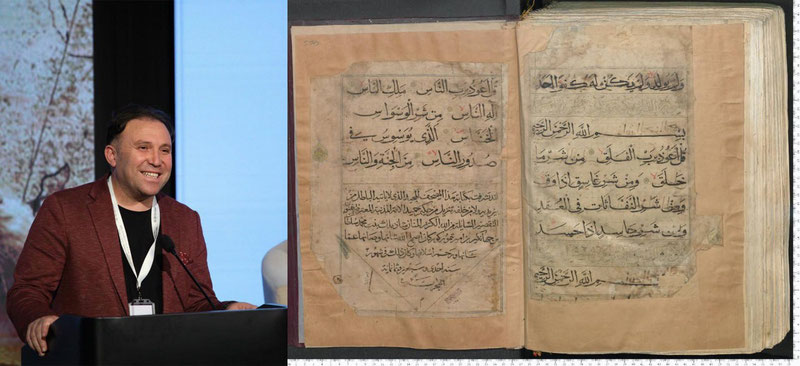Among the participants of this week includes the Turkish researcher, professor of Istanbul University, Dr. Emek Ushenmez, who also presented a number of new projects. Similarly, E.Ushenmez held a lecture about a manuscript of the Qur'an written by Shodmalik Khatun, a princess from the lineage of Amir Temur, in Turkey.
“This manuscript was transcribed in the year 871 Hijri, corresponding to 1467 AD, - says Emek Ushenmez. - The exact location where the manuscript was copied is currently unknown. It is presently kept at the Museum of Turkish and Islamic Arts in Istanbul. The conclusion of the manuscript in Arabic states that this Qur'an was transcribed by the hand of Shodmalik, daughter of Muhammad Sultan Mirzo. Furthermore, it is noted that Shodmalik's father is Muhammad Sultan, her grandfather Jahangir, and her great-grandfather Amir Temur Ko'ragon.
As is known, Amir Temur took his eldest grandson Muhammad Sultan along with him to the battle against the Ottoman Sultan Yildirim Bayezid in 1402. The prince was seen by Amir Temur as the heir to his throne because he was the only son of Jahangir Mirzo, Amir Temur's elder son. However, Muhammad Sultan was severely injured in the Battle of Ankara. He died in 1403 at the age of 28 near the province of Afyonkarahisar. Initially, the prince's body was buried in Sultaniya, and then later transferred to Samarkand for burial. According to records, Muhammad Sultan left behind twelve children. One of them was his daughter Shodmalik Sultan by Davlat Sultan.
This copy of the Qur'an reveals that Shodmalik Sultan completed this manuscript with her own hand when she was between the ages of 65-70. Importantly, until this time, there has been no information found about any Timurid princesses who engaged in the calligraphy of the Qur'an. This manuscript is being highlighted not only for its religious and educational significance but also from a historical perspective.






